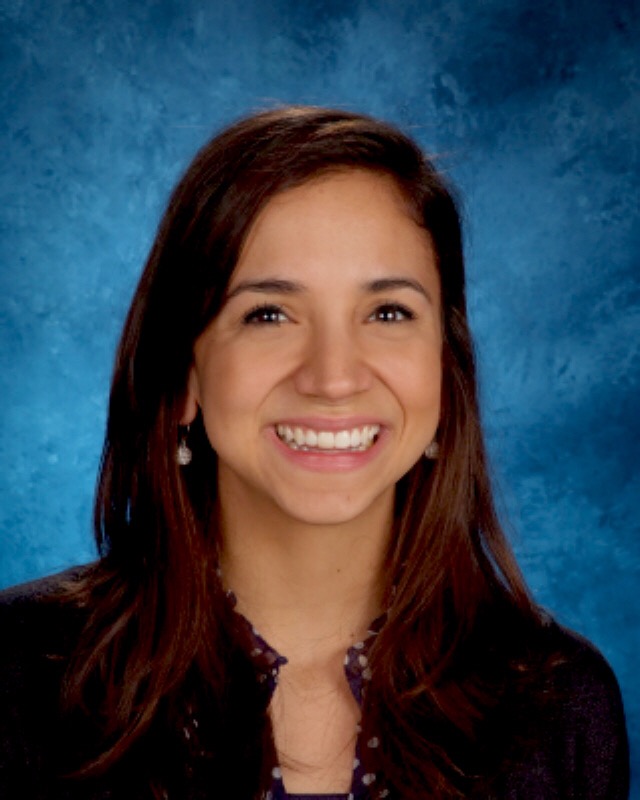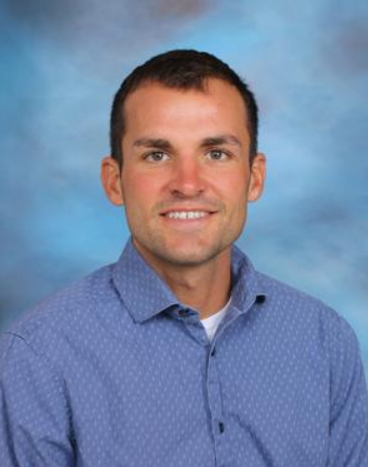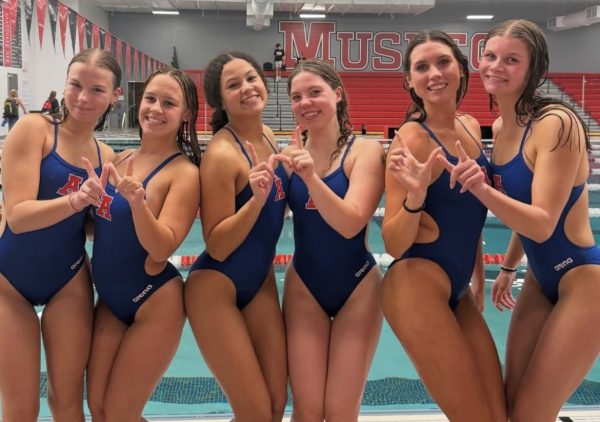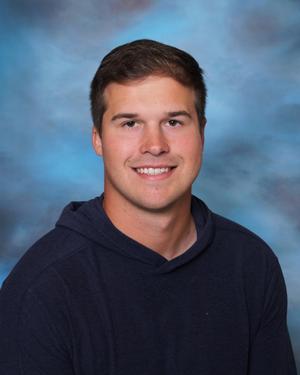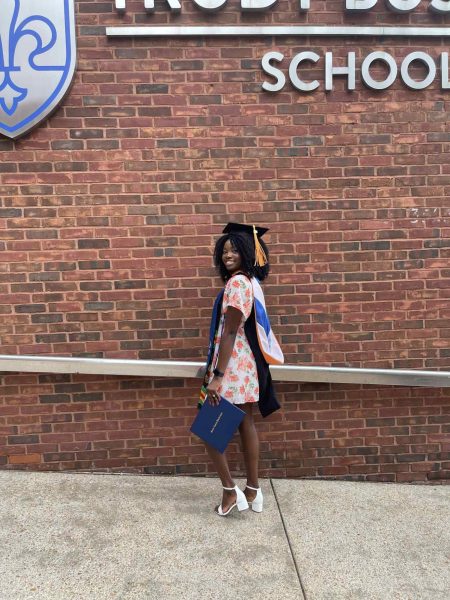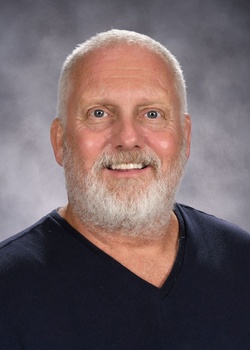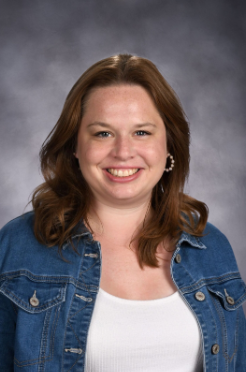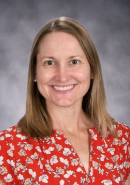Alicia Obermann Followed Her Passion to Teaching
Alicia Oberman has taught at Arrowhead for nine years. She also teaches at Merton Intermediate, which she has done for five years. She currently teaches eighth grade geometry, freshman/sophomore trigonometry/precalc, and precalc.
Obermann went to Appleton West High School.
In high school, she says she had two influential teachers. Mr. Sanders, her AP Lit teacher, didn’t teach like a typical teacher. He didn’t have a textbook. She said, instead, he paved his own way. He gave atypical assignments. He read novels at a college level. On the first day, they went over a dozen words the class didn’t know. He had a different style and she had to grasp onto that. He had an interesting background and was intelligent. He would tell cool stories. He was able to create his own language and make meaning, and bring references about SpongeBob into class.
She says he was “able to grab your attention.” She said she would be hanging onto every words he said, and wanted him to say, “tell me more.”
She was intrigued in his different teaching style. All of this fascinated Obermann and inspired her to become a teacher.
Another who inspired her was her Physics teacher Mr. Franzen. One day, the class went to the football field to understand velocity and acceleration. They did an experiment with a potato spud launcher and recorded and gathered data. The teacher would interpret what the class said and discuss it with them. They predicted the velocity using velocity cars and a matchbox car going down the ramp. He made learning fun.
“I wanted to be in class, keep learning because of them,” said Obermann.
Overmann’s parents never funelled her career decisions down a path. They were open to what she was interested in and encouraged her to pursue her passions, she says. For Obermann, running, volleyball, and softball were her passion.
“Mom was like ‘try cross country, track,’ ‘try it out,’” so she did in high school and in college. She taught swimming lessons, and lifeguarded at the YMCA. She said her mom said it “seem[s] like you like working with kids, is this something you wanted to do career wise?”
She did the Midwest Compact Citizenship Mp3 through AmeriCorps. She had to do 1,000 hours of service. She says her primary chunk of service came from helping students in Green Bay. After school, she would go to inner city schools, boys and girls clubs, and elementary schools. Over the summer, she continued to work at the YMCA, volunteer at the boys and girls clubs, and tutor kids. At this point, she dropped architect as a major and went for education.
She said she got a certification for middle school and high school because it was more challenging to teach younger children, such as fifth and sixth grade, because she’s teaching behavior as well as the material. She said it’s much easier to enforce good behavior at the high school level. She said it’s also said it’s more challenging to teach lower levels because the kids are a little more needy.
“I originally was looking at MSOE and University of Minnesota for their architecture programs. While I did want to pursue architecture (MSOE and University of Minnesota have great programs, MSOE was geared towards Architectural Engineering, [which was] not something I was interested in. After touring University of Minnesota, it seemed too big for me). I kept my options open towards other schools, and after touring St. Norbert, I fell in love with the school and while they didn’t have an architecture program, I knew I wanted to go to school there,” said Obermann in an email.
“I started freshman year with a Math Major and then decided on doing Education after a leadership fellowship ‘M3C—Midwest Campus Compact Citizen-scholar program’ first semester freshman year where we did most of our service hours at Green Bay elementary schools tutoring kids in reading. I fell in love with helping kids read and seeing students enjoy learning. I loved math and helping students, hence the math teacher career.”
Because of AmeriCorps, she changed her major.
She says her favorite part of teaching is “seeing physical face when a kid gets it, it’s like having that lightbulb above their head and it goes off. The fun part is trying to get the light bulb go off by doing various teaching methods…I find it fun trying to see how a kid will get it. But the face when a kid gets it, that’s when it’s like ‘yes.’ Or seeing that kids are enjoying learning, more like ‘I get this, this is fun, I’m glad I’m in class today.’”
She said one of difficult parts of teaching is time management.
“I try as hard as I can to while I’m at school, [to] always be working. I understand people needing a mental break. I try to get to school early because that’s my most productive time. [I] work from 6:30am to 3:30pm but trying to constantly work throughout that time puts less of a burden to work outside of school.”
Her biggest recommendation is to treat school like a job. “When you’re at school, doing homework, asking for help from a professor, or setting time from nine to five or eight to four, to use the time of the day for classes, be good at time management, and save the end of the day for you time,” she says.
She says her typical routine for the day is fun because she’s adjusted to the job. She has different activities, tries to add challenging problems, making it more project based, and “not [offer] so many outlines or note packets,” she said. She said she might add a few different examples. But, the meat of note is the same. “A lot of what I do isn’t focused on creating the material, it’s more focused on being creative with the material. Adding some flare, sparking, adding some spice to it,” she said.
Obermann says she’s the first of her mom’s side of the family to complete college. Her mom started and got really sick, she she got an Associates Degrees, and went back later to finish college when Obermann was in middle school. She also said no one in her family was an elementary or high school teacher. “I’m the first trailblazer,” she said.
She said teachers put the time and energy into their job.
“Until you work closely with a teacher or have a teacher in your family, people may not be aware of the amount of time and energy that teachers put into a school day and on the weekend. Some may not have summers off, they’re planning for the upcoming school year, teachers do scoring for scoreboard, helping with concerts, plays, and dances. I would tell my high schoolers that ‘try to find a teacher that inspires you and then try to figure out what kids are inspired by for the teachers,” she said.
Her advice for anyone: “Find your inspiration.”
